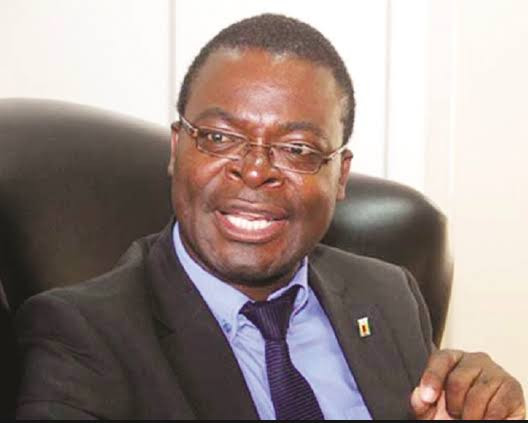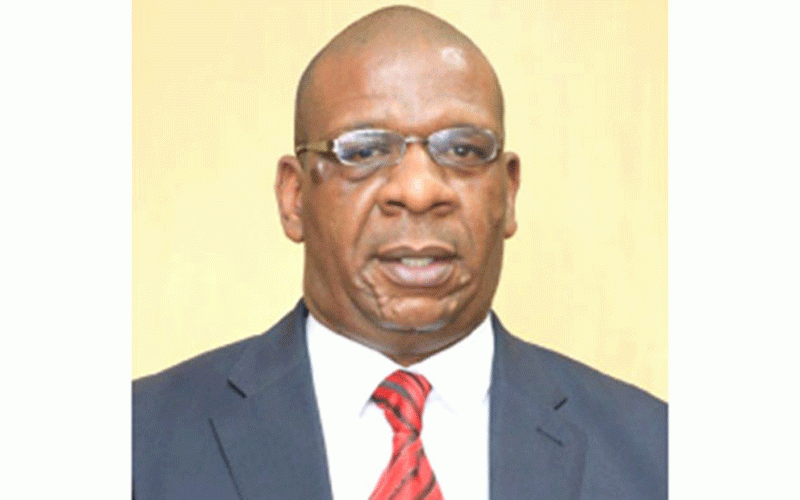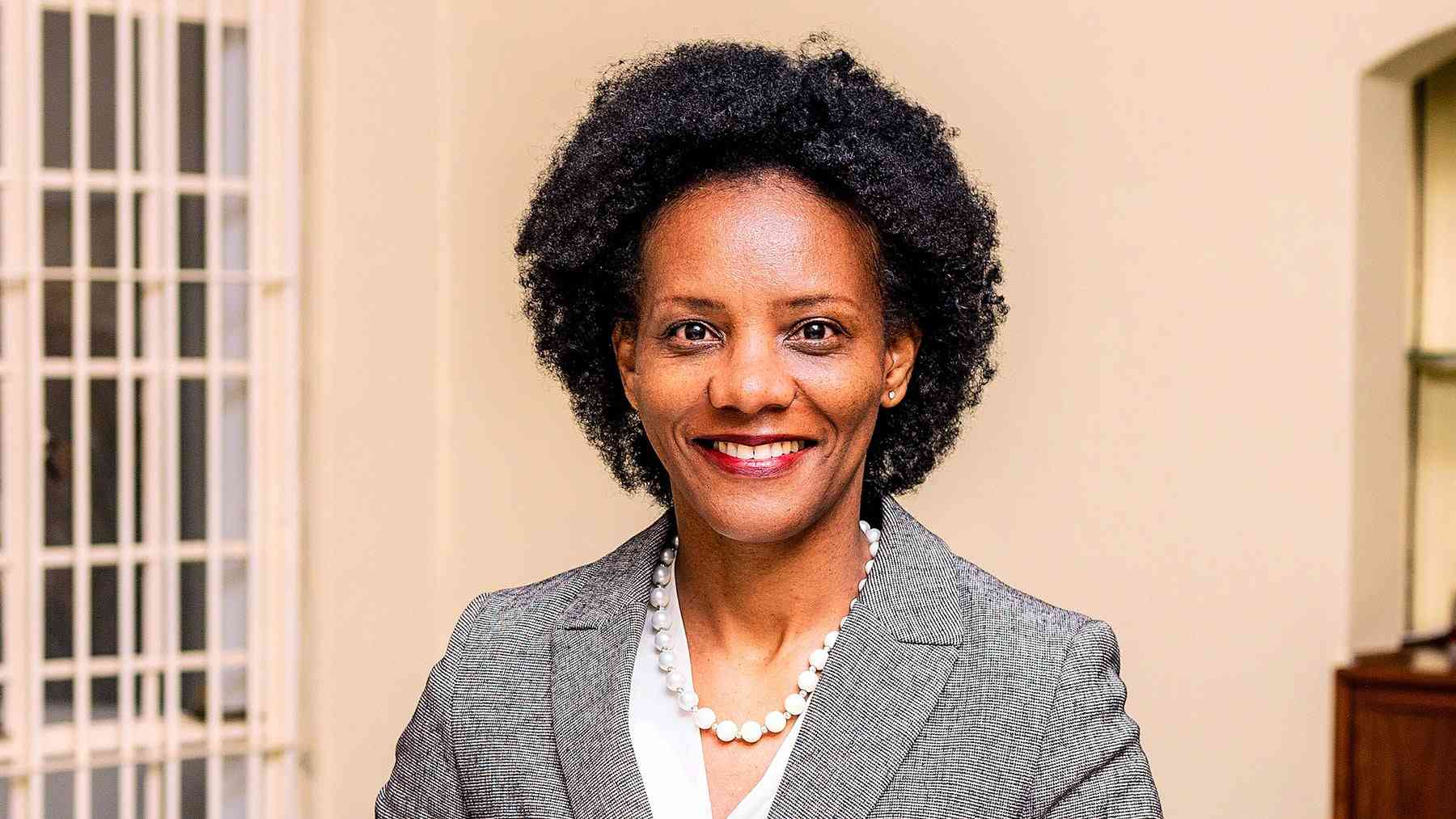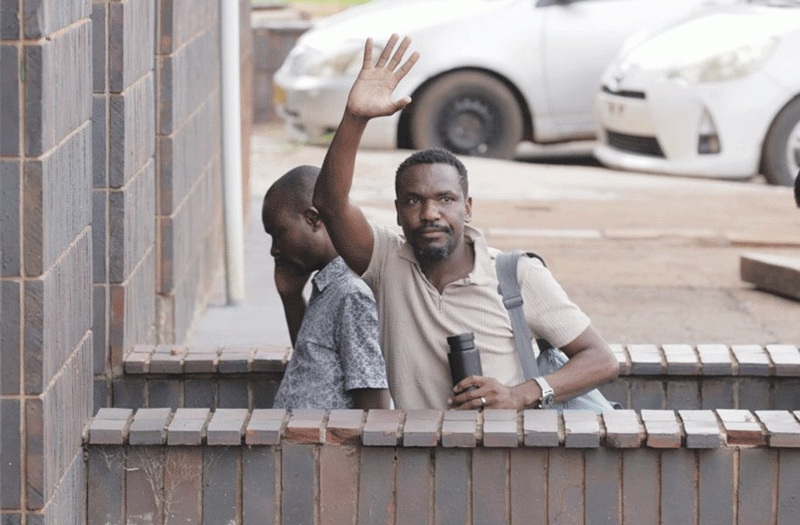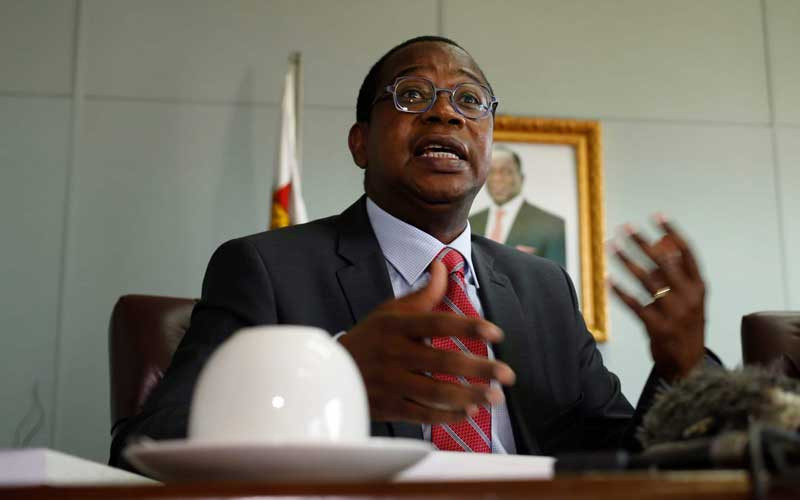
ZIMBABWE is busy preparing for the make-or-break elections expected this year after the curtains came down on 2022, a year marked by spiking inflation which peaked at 254% in December.
Zimbabweans are already battling debilitating power cuts stretching for 18 hours daily while the effects of decades of plunder, mismanagement and sheer greed t have grounded what was once an African model economy. Poverty levels are deepening and income levels are dwindling daily.
Foreign currency shortages are deepening while various volatilities continue to batter the economy. The local currency on the other hand has been on a depreciating trajectory with the parallel market rate ranging between ZWL$850 and ZW$900 to US$1.On the official auction, it has been the same trend where the local currency now sits at US$1:ZWL$671,44. This was further compounded by the United States dollar being the preferred currency of trade.
As the year 2022 came to an end, we reviewed various government ministries, their performance, challenges and more important achievements.
Finance ministry
It was a turbulent year for the Ministry of Finance and Economic Development. In a bid to curb galloping inflation and stem extensive currency battering, the ministry rolled out multiple measures, many of them hasty. Instead of keeping the economy afloat, several policies implemented brought unintended consequences. For instance, the blanket ban on banking sector lending and the imposition of a 40% tax on traders who dispose of shares in less than 270 days, all triggered economic pandemonium. After a serious backlash, the 270 days were reduced to 180 days.
Uncharacteristically, the government also hiked the policy rate in May to 200%, one of the highest in the world. The ban on bank lending triggered a crisis as crucial credit lines to farmers were cut and that was rescinded 10 days later. The capital tax hurt the performance of the stock exchange. The hike in interest rates also severely reduced confidence.
However, the introduction of gold coins as an alternative store of value and review of government contracts helped bring relative economic stability. Among other critical interventions, the suspension of payments on all government suppliers proved to be a masterstroke in curbing extortionate pricing as well as forward pricing. This played a critical role in putting orders on the parallel market.
- Mavhunga puts DeMbare into Chibuku quarterfinals
- Bulls to charge into Zimbabwe gold stocks
- Ndiraya concerned as goals dry up
- Letters: How solar power is transforming African farms
Keep Reading
Foreign Affairs ministry
When President Emmerson Mnangagwa appointed Frederick Shava as Minister of Foreign Affairs and International Trade in February last year, replacing the late Sibusiso Moyo, there was a general outcry that he was recycling deadwood in the Cabinet. But the appointment has turned out to be a masterstroke with Shava fitting in well into the role.
A career diplomat, Shava has led Mnangagwa’s thrust on engagement and re-engagement, which has seen Zimbabwe being recognised in the international arena. One of Shava’s major achievements is representing Mnangagwa at international events, especially the recently held US-Africa Summit and Queen Elizabeth’s funeral in the United Kingdom. However, Shava’s achievements have suffered a knock as Zimbabwe continues to struggle to stop sanctions imposed by Western powers in 2000. The United States still maintains the Zimbabwe Democracy and Economic Recovery Act. The US also continues to put many Zimbabweans on its sanctions list.
Despite the achievements recorded so far, the ministry has failed to fully revamp the international trade aspect where several Zimbabwean traders are still finding it hard to access foreign markets.
Public Service ministry
The Ministry of Public Service, Labour and Social Welfare was actively making efforts to revive the Tripartite Negotiating Forum (TNF), a social dialogue platform that brings together the parties to explore ways of navigating socio-economic problems affecting Zimbabwe. TNF had stalled due to confrontations, deadlocks and finger-pointing between key stakeholders – government, labour and business. Walkouts during heated debates derailed the progress of negotiations under TNF.
The TNF, which was legislated in June 2019, is finally gaining traction. This was evidenced by the three social partners finding common ground last month and agreeing to a threshold minimum wage across all sectors of US$150 in either hard currency or local currency at the interbank rate. It was a breakthrough to what has been a lengthy impasse.
Whether businesses will afford it or not becomes another issue to follow in 2023. The ministry has also made progress on the amendment of the Labour Act, currently undergoing requisite processes, as well as putting together a comprehensive formalisation plan. However, the threat of three-digit inflation, which has eroded incomes, remains a major impediment to its efforts.
Home Affairs ministry
In a positive move, the government through the Ministry of Home Affairs and Cultural Heritage introduced e-passports in March this year and this process has since brought normalcy to the usually chaotic passport acquisition process in the country.
To date, the process of acquiring a passport has become smooth while the period of passport issuance has dramatically dropped compared to the monstrous backlog of the past.
The ministry during the year went on a blitz of giving national identification cards and birth certificates across the country. More than a million people to date have obtained birth certificates and national identity cards. These are vital documents, hence the government's desire to ensure everyone was entitled to have the documents. The process to acquire these critical documents was made easy.
However, despite the positives recorded during the year, the ministry failed to put a leash on the Zimbabwe Republic Police which falls under its ambit. During the year there were several incidences implicating the police in terms of human rights violations. It was the conduct of law enforcement agencies that sparked violence during the funeral of Citizens Coalition for Change (CCC) activist Moreblessing Ali. In addition, the ministry has also failed to fully equip the police hence the latest spike in gruesome crimes across the country.
Defence ministry
Zimbabwe in July last year deployed troops in Mozambique. The troops were deployed to assist in the training of Mozambique's armed forces to enhance their capacity to fight terrorism.
While some countries have to deploy combat troops to Mozambique, Zimbabwe pledged to assist in training Mozambican soldiers to help them combat the Islamist insurgency that has rocked the northern part of the country. Zimbabwe, according to reports, sent a total of 304 soldiers to Mozambique, comprising 303 instructors and one specialist officer to the coordinating mechanism of the Sadc Force Headquarters in Maputo.
Considering the strategic importance of Mozambique to Zimbabweans interests, this was a splendid move by the Ministry of Defence, towards the restoration of peace in the region.
However, the ministry failed to fight for the rights of war veterans and some of its war veteran members got arrested for protesting against poverty and poor remuneration. During the year, there was also a rise in gruesome crimes perpetrated by members of the Defence Forces and the ministry, to a great extent, failed to instill discipline within the force as well as advocate for the improvement of working conditions of defence forces.
Health and Child Care ministry
This crucial ministry successfully combated the novel Covid-19 pandemic at its peak in 2020 and 2021. The ministry worked well with other ministries and government arms and departments to reduce the ramifications of the pandemic. Zimbabwe’s death toll is just over 5 000 deaths, but other countries recorded much higher fatalities.
But the ministry has struggled to motivate the general public to take up Covid-19 vaccines. The numbers of vaccinated citizens are still very low. Zimbabwe has struggled to reach its head immunity mark of 60% of the population. On the low side, the ministry is still struggling to improve conditions at Zimbabwe’s health institutions which are on a downward spiral. Some deaths recorded in various health facilities have been equated to a lack of equipment, drugs and other vital necessities. Staff at health institutions have been demotivated for years without any hope of positive intervention from the government.
Energy and Power ministry
Zimbabwe has plunged into unprecedented power outages following an announcement by Zambezi River Authority (ZRA) in December last year that state-run power utility, Zesa Holdings could no longer generate sufficient power at its Kariba southern hydroelectric power plant due to low water levels.
In the wake of the announcement, authorities further issued conflicting statements, as they tried to explain blanket blackouts of up to 18 hours daily.
Energy and Power Development minister Zhemu Soda disclosed that the deadly crisis was attributable to this winter’s bumper wheat harvest, which resulted in most of Kariba Dam’s water allocations being utilised for irrigation, an explanation which was widely ridiculed.
To mitigate the effects of rolling power cuts on the fragile economy, the government appealed to Independent Power Producers (IPPs) to increase output and join the national power grid. Zimbabwe’s power woes, which in the past have been eased by imports, are projected to persist in the long term as shortages haunt the region.
However, despite the current challenges the Ministry has been instrumental in the licensing of Independent Power Producers (IPPs) as well as the importation of power despite funding constraints at the Treasury. The Ministry also managed to find a lasting solution to the fuel shortage situation that dominated the majority of 2020 and partly of 2021.
Justice ministry
The Justice Ministry 2022 faced massive criticism following the introduction of the Private Voluntary Organisation (PVO) Amendment Bill.
Various critics noted that the bill violated the Constitution, adding that it failed to explain why the government wanted to revamp the administration of civic society organisations (CSOs). The government gazetted the PVO Amendment Bill on November 5, whose provisions will adversely affect and effectively eliminate organisations involved in promoting and defending human rights in the country.
This initiative is driven through the Justice Ministry, which according to legal experts will leave political victims more vulnerable.
During the year 2022, the whole judiciary system was plunged into an array of judicial scandals that saw several judges getting fired while the number of pending judgements at superior courts kept souring.
However, despite the negatives, the Justice ministry managed to introduce an array of innovative measures to enhance efficiency in the justice delivery system. The year saw the introduction of electronic courts as well general digitisation of the court system in line with new justice delivery trends. This saw some people attending trials online from Chikurubi Maximum Prison at the height of the Covid-19 pandemic.
The year also saw the Justice Ministry increasing the number of courts across the country in a bid of improving the justice delivery system.
Local Government ministry
At the Ministry of Local Government and Public Works, minister July Moyo and his officials hogged the limelight this year when it was announced that the government was going to settle arrears running into millions of United States dollars arising from the City of Harare disowning the US$240 million waste management deal it entered with Netherlands-based company Geogenix BV. The firm is fronted by businessman Delish Nguwaya.
Under the controversial deal, which is set to run for the next 30 years, Geogenix BV will take over waste management at Harare’s Pomona dumpsite and process it to produce clean energy. However, the City of Harare has since cancelled the deal, arguing that it was not procedurally agreed upon. As a result, the local government and public works ministry has inherited the deal, including taking over the financial obligations about the same. As of October 2, the government had doled out US$6 million to Geogenix BV after the City of Harare declined to pay the amount.
The Ministry during the year also failed to bring sanity in various local authorities as several of them continue to operate with staff in an acting capacity, especially in the case of Harare City.
However, the Ministry despite the shortcomings managed to successfully clamp down on land barons that had been fleecing desperate land seekers.
Housing ministry
Zimbabwe’S housing backlog in urban areas in 2022 shot up to 2 million from around 1,5 million reported in February of the same year. Revealing the figure, National Housing and Social Amenities minister Daniel Garwe noted the rising demand for housing. Despite the spike in demand, the ministry to date has failed to come up with a proper housing masterplan to address housing issues. This can be seen by the swelling list of people going on housing waiting lists to no avail. The Ministry during the year also embarked on some clean-up exercises to weed out illegal settlements and this triggered a wave of house demolitions.
However, despite the failure to provide sustainable housing solutions, the ministry during the year 2022 managed to fight unjustified demolitions in some areas like Crowhill and Arlington. At one point Harare provincial development coordinator Tafadzwa Muguti sent shockwaves among residents of Arlington when he declared that the leafy suburb was illegal. The ministry through Garwe managed to fight for the residents positively.
Primary and Secondary Education Ministry
The Ministry of Primary and Secondary Education still struggles to inspire teachers to stay in classrooms. This reflected badly on results achieved at the Zimbabwe Schools Examinations Council’s (Zimsec) Grade 7, Ordinary Level and Advanced Level. Teachers’ unions continue to clamour for more pay and better working conditions. But their calls seem to be hitting a brick wall. Unmotivated, teachers now only attend classes because of government threats. But it remains to be seen if teachers perform their duties as a result of force. The ministry has also failed to improve working conditions for teachers working in rural areas. Their allowances are not paid and they live in abject poverty. Well-to-do parents are sending their children to private schools where they are assured of better service. The government has, however, promised to pay school fees for three children per teacher and this has to a lesser extent brought relief on the part of teachers.
Higher and Tertiary education Ministry
For the Higher and Tertiary Education, Science and Technology Development ministry, the year 2022 was a mixed bag.
But a big highlight was the launch of the Zimbabwe Satellite (ZimSat-1) at the Kyushu Institute of Technology in Japan. The development put to rest most people who have doubted Zimbabwe’s thrust in science and technology. Equipped with a multispectral camera, an image classification tool, as well as transmitters and receivers for radio, ZimSat-1 will help Zimbabwe map out the country, including weather forecasting, infrastructure planning and disaster prevention. The ministry also successfully introduced degree programmes for doctors at the Midlands State University (MSU) and the Great Zimbabwe University (GZU). Some innovative hubs at universities have also started producing commendable results.
However, the year was blighted by riots that rocked the University of Zimbabwe (UZ) when students protested over increases in fees. Another challenge was the continued loss of lecturers leaving Zimbabwe for greener pastures. Several projects commissioned by President Emmerson Mnangagwa have been grounded due to a lack of funding.
Tourism Ministry
In his role as minister of Environment, Tourism, Climate Change, and Hospitality Industry for Zimbabwe since November 2019, Nqobizitha Ndlovu has performed fairly well compared to his immediate predecessor.
He took over the ministry at a time when Covid-19 hit the entire planet. The industry suffered greatly as a result. Under his leadership, the number of visitors to the nation rose by 115% to 352 719 in the first half of 2022. Revenues from tourism increased by 121% to US$337,5 million as compared to the same time in 2021.
A total of 1,4 million more tourists are anticipated by the industry in 2023, generating an estimated US$623 million in revenue. The notion of placing attachés at the nation's embassies to sell and advance the reputation of Zimbabwe was admirable. Ndlovu, however, has not succeeded in expelling powerful individuals who have invaded the Midlands Black Rhino Conservancy.
The critically endangered black rhinoceros and other animal and bird species, whose habitat in the conservancy is under increased threat, are being harmed by the invaders. This suggests that he is failing to establish his authority as the minister in charge of tourism and the environment.
Mines ministry
The Mines ministry made the whole government busy during the year 2022 looking at the number of multi-billion dollar deals that were commissioned by President Emmerson Mnangagwa. Several deals across the mining spectrum were signed with some deals expected to culminate in the construction of mega parks. The Mines ministry through its policies also saw a rise in mining production as well a spike in mining revenues this year.Zimbabwe has significant reserves of platinum group metals, gold, chrome, coal, diamonds and lithium and the mining sector now contributes about 11% of the country’s gross domestic product (GDP) and over 60% of export earnings.
However, despite the milestones, the ministry failed dismally in bringing order across the artisanal mining spectrum. Chaos continued to reign supreme and the recent discovery of lithium caught the authorities by surprise and the abrupt ban on raw lithium exports was nothing but just a desperate measure at a time when the horses had already bolted. The failure to amend the outdated Mines and Minerals bill remains another issue that the ministry has completely failed to address.
Agriculture Ministry
ANXIOUS Masuka was named minister of Lands, Agriculture, Water, and Rural Resettlement in August 2020 following Terrence Shiri's death.
Masuka, a supposedly technocratic minister, is one of the least effective members of the current cabinet. He has had difficulty stepping into the shoes of his predecessor. Under his watch, about four million people from Zimbabwe’s rural population will be food insecure between January and March 2023. The minister has done little to help the nation move away from rainfed to irrigated agriculture. Globally, rainfed crop yields are about 50% lower than yields obtained under irrigated conditions.
Additionally, under his direction, farm invasions have increased; the most recent was a Zanu-PF political assault on the Esidakeni property and seizure of a ranch in Chiredzi covering 5 000 hectares. Many maize producers are considering abandoning the crop in favour of more lucrative cash crops like tobacco due to the low producer pricing.
However, it was a smart idea to introduce an intense blitz dipping campaign and a blitz tick grease program as part of the presidential livestock program that supports rural livestock farmers. This led to a 47% drop in January Disease-related deaths and cases in 2021.
The Agriculture Productive Scheme (Pfumvudza/Intwasa) is also a beneficial initiative because it provides inputs to needy households. However, the plan is archaic and labour-intensive. It needs to be modernised.
Youth Sports and Culture
The Ministry under the stewardship of Kirsty Coventry made an array of dubious decisions during the year. This saw Norton Independent legislator Themba Mliswa describing the minister as being hopelessly out of depth. The firing of the Zimbabwe Football Association (Zifa) executive and the eventual suspension of Zimbabwean football by Zifa proved to be the final blow. To date, Zimbabwean football is still under suspension. Other questionable decisions were made in Zimbabwe cricket while the empowerment of youth in the country has remained a pipedream compared to what was done in the past. There are no proper empowerment initiatives for youth, something that has since plunged several youths into drug and substance abuse.
However, the ministry through its deputy minister Tinomuda Machakaire has managed to support the cultural and entertainment side by funding musical bashes and educating youth on the implications of drug abuse. But that has not been enough and a lot still needs to be done.

